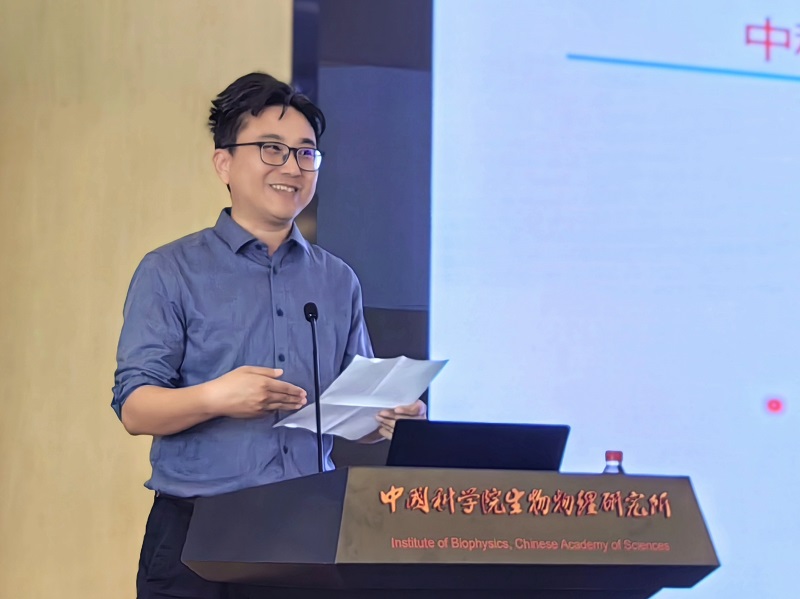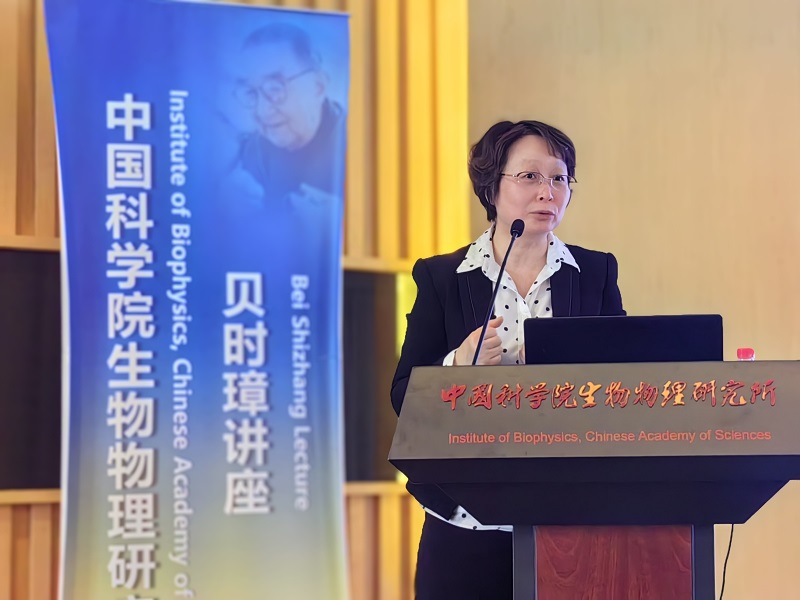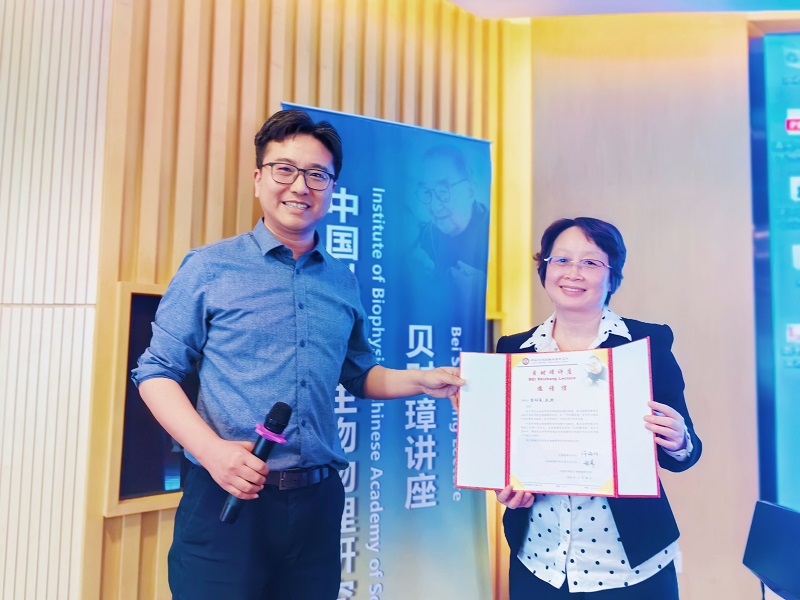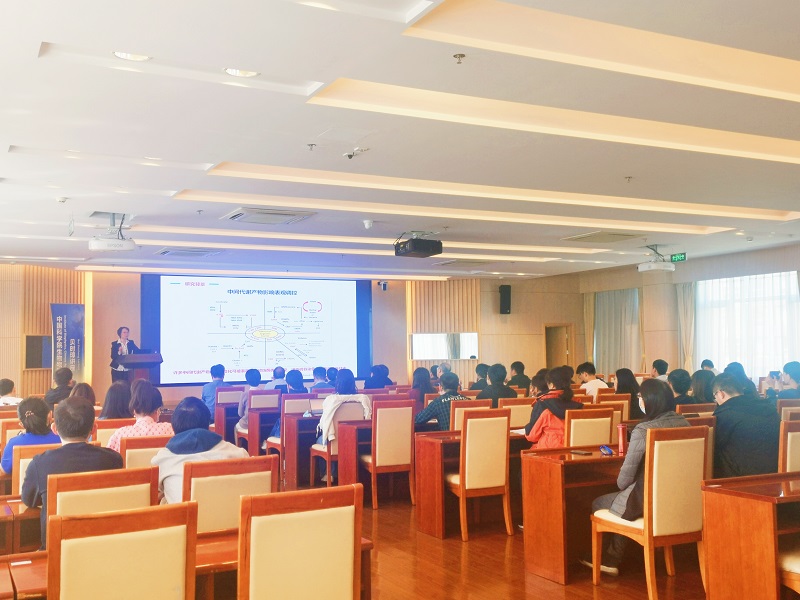Professor Qunying Lei visited the Institute of Biophysics (IBP) and gave a Bei Shizhang Lecture
Professor Qunying Lei from Fudan University was invited by IBP to give a report entitled Nutritional and Cellular Metabolic Plasticity on April 26, 2023. The lecture was presided by Professor Pengyuan Yang. The Principal Investigators and students from IBP attended the report.
Prof. Qunying Lei has long been committed to the research on the nutrition and tumor metabolism. Her team first discovered that acetyl-CoA from different carbon sources regulates the plasticity of tumor cells, and her team also took the lead in linking acetylation with chaperone-mediated autophagy. Secondly, she found that SAH inhibits autophagy and BCAA/BCKA promotes the early occurrence of obesity and pancreatic cancer. Her team proved that the sensing signaling pathways of these metabolites are not dependent on the classic mTOR signaling pathway. Finally, she clarified the key role of BCAA metabolic remodeling in the early occurrence of pancreatic cancer and the significance of metabolic targeted therapy. These findings have been published in many academic journals such as Cancer Cell, Mol Cell, Nat Cell Biol and Nat Metab. Prof. Lei is currently the chairman of Chinese Society for Cell Metabolism and Dean of School of Basic Medicine, Fudan University. She has also won a number of honors, including China's Young Female Scientist Award, Shanghai Natural Science First Prize (First contributor), Tan Jiazhen Life Science Innovation Award, Wu Jieping - Paul Janssen Medical & Pharmaceutical Award and Woman Pacesetter.
In this lecture, Prof. Lei shared their breakthroughs in the metabolic regulation in pancreatic cancer in recent years. Previous studies have shown that branched-chain amino acid (BCAA) is abnormal in serum of patients with pancreatic cancer before early diagnosis. However, its role and mechanism in the development of PDAC is still unclear. Prof. Lei demonstrated KRAS-mutation-induced BCAA metabolic remodeling promotes the development of PDAC by multiple assays such as pancreatic ductal organoids, tissue-specific mouse models and clinical samples. However, branched-chain amino acid transaminase 2 (BCAT2) can enhance the body's ability to absorb BCAA, and knocking out or inhibiting BCAT2 can significantly slow down the progression of PDAC and improve clinical symptoms. Mechanistically, they found that BCAT2-enhanced mitochondrial function maintained BCAA usage to promote tumor progression. This study revealed the key role of the BCAA-BCAT2 metabolic axis in the early development of PDAC, indicating a potential strategy of BCAT2 inhibitors or a BCAA-low diet for PDAC.
Prof. Lei shared her research experience and her lecture was rich in contents, profound and easy-to-understand. After the report, the researchers and students raised questions of their interests and exchanged ideas with Prof. Lei.

Professor Pengyuan Yang hosted the lecture

Professor Qunying Lei was giving the lecture

Prof. Qunying Lei and Prof. Pengyuan Yang

The audience

